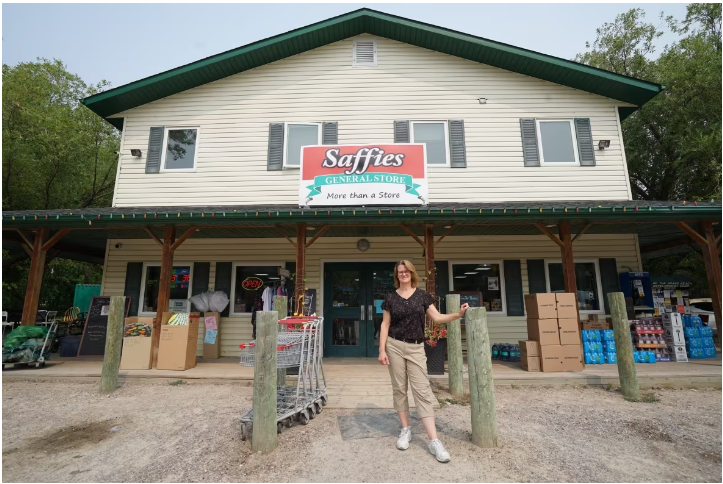Best CCTV Security Camera in Brampton
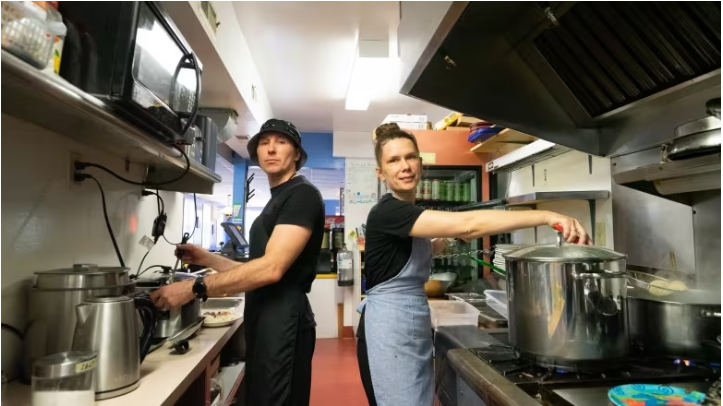
Olha Mashyna, right, and her husband, Oleksandr Mashyn, have been using the kitchen at Le Goûter in Albert Beach, Man., every Monday and Tuesday for free. (Gavin Boutroy/Radio-Canada)
Best CCTV Camera in Brampton
Being a cook might be Olha Mashyna’s destiny.
After she and her family fled the war in Ukraine and moved to Winnipeg earlier this year, a chance encounter with a Manitoba restaurant owner brought her back to doing the thing she loves — serving Ukrainian cuisine.
Mashyna and her husband, Oleksandr Mashyn, have been cooking and serving Ukrainian cuisine at a restaurant called Le Goûter in Albert Beach, Man., every Monday and Tuesday.
The owners, who normally close the restaurant down on on those days, offered up their kitchen for Mashyna and her husband to use — free of charge.
Mashyna says it’s been a way for them to gain valuable work experience and earn some income.
“It’s far from our home, but it’s … experience. It’s big experience,” Mashyna told CBC.
She moved to Winnipeg’s Transcona neighbourhood with her family in March.
They came from a village close to Zaporizhzhia — about 10 kilometres from the front lines of the war that started when Russia invaded Ukraine in 2022 — where they owned two stores and ran a cafe.
She said it was difficult to adjust after leaving her life behind in Ukraine.
“We work hard every day. In Ukraine, we have everything. We have two apartments … two cars. We have money. We have life,” she said.
“I really missed my store. It’s my love.”
But as fate would have it, Mashyna met Lise Bourassa, the owner of Le Goûter, at a food handling course in April.
“We started talking, and I realized we have a lot in common,” said Bourassa, who owns the restaurant in Albert Beach, on the eastern shore of Lake Winnipeg, with her husband. The couple also owns Saffies General Store, which is right across the street from the restaurant.
“We just kind of hit it off right away,” she added.
Bourassa said she and her husband were planning on closing the restaurant down for a couple nights a week anyway, since they were low on cooks.
“The restaurant’s here and this is a gift that we can give them, as the community really gave to us when we first arrived,” she told CBC.
Cheap CCTV Camera in Brampton
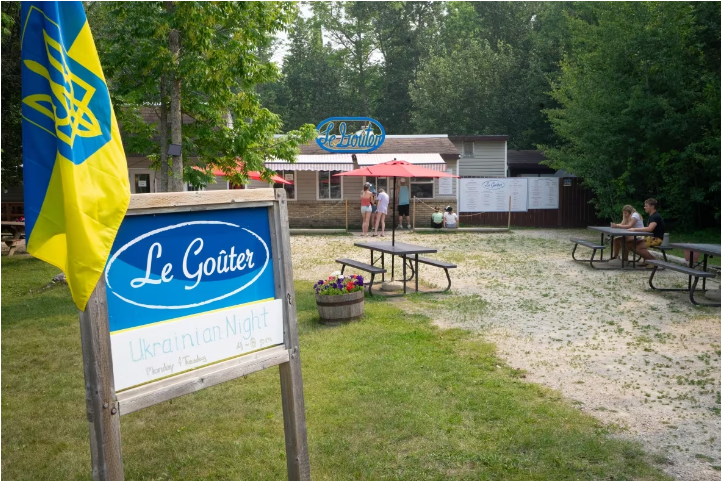
Mashyna and Mashyn are looking for a restaurant or kitchen to rent after Le Goûter closes for the season in September. (Gavin Boutroy/Radio-Canada)
Home CCTV Camera in Brampton
And Mashyna’s menu — which includes perogies, cabbage rolls, borscht, meatballs and other Ukrainian staples — has been a hit so far and it is because she loves serving Ukrainian cuisine.
“They always say ‘thank you’ and ‘it’s delicious,'” she said. “It’s amazing.”
People even drive in from Winnipeg, about 100 kilometres to the south, to dine on the nights Mashyna works, and the food usually sells out each evening, Bourassa said.
“It’s amazing how many people are coming and learning about it,” said Bourassa.
Mashyna isn’t sure if she’d move back to Ukraine, since so much has been destroyed. Instead, she’s looking for a kitchen or restaurant to rent in or around Winnipeg by September, when Le Goûter closes down for the season.
“I really like Canada. I see how I can work here,” she said. “It’s my destiny, maybe. I cooked in Ukraine and cooked here.”
Mashyna said she’s thankful for Bourassa and her husband for helping them as much as they have.
“If I need something, they help us. They always help us,” she said.
Best CCTV Camera in Brampton
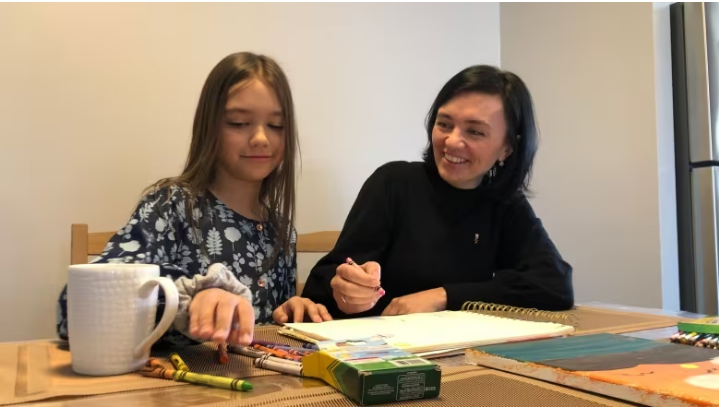
Olena Gordiyenko and daughter Anna have been living in Winnipeg since September. Gordiyenko’s husband and son are still in Ukraine. (Alana Cole/CBC)
Home CCTV Camera in Brampton
In the year since Russia’s invasion of Ukraine, thousands of people arrived in Manitoba after leaving their homes and lives behind to flee the war.
Some have already returned to Europe. Others are hoping to stay in Canada permanently. Then there are those, like Olena Gordiyenko, who are still facing uncertainty around what comes next.
“Of course my heart is in Ukraine,” she said, sitting in her new apartment located near the University of Manitoba where she’s working on a one-year contract.
Gordiyenko arrived in Winnipeg with her nine-year-old daughter Anna last September.
A provincial spokesperson said Tuesday more than 17,200 Ukrainians have presented to Manitoba’s reception and welcoming centre since the start of the war. Roughly 13,200 provincial health cards have been issued.
The federal government launched the Canada-Ukraine authorization for emergency travel program last March, which allowed Ukrainians to come to Canada quickly to work or study for up to three years. Those who want to become permanent residents may be able to apply for other programs, the government says.
Gordiyenko said she wasn’t planning to leave Ukraine. She had her family, a home and a good job in Zaporizhzhia, where she’s from.
“Everything was perfect and I was absolutely happy,” she said of her life in Ukraine. “Now I understand it, that I was absolutely happy because I’ve had the chance to compare.”
When the war started everything changed. Gordiyenko and her family made the decision for herself and Anna to leave Ukraine, while her husband and 21-year-old son stayed behind.
Though there are exceptions, men between the ages of 18 and 60 were barred from leaving Ukraine. Her son is currently finishing his university studies online.
“It was very difficult to make a choice, but … this decision was made by our family together,” said Gordiyenko.
“The main thing was that my daughter, now, she is safe. She is not in war, she sleeps OK, she is absolutely happy here.”
Best CCTV Camera in Brampton
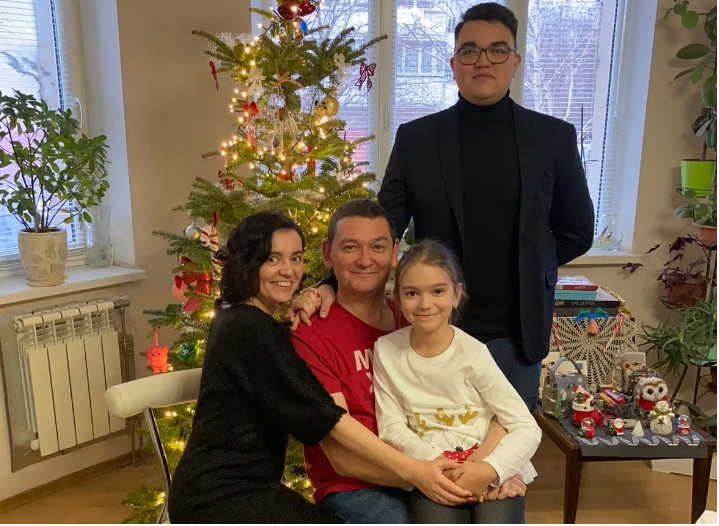
Olena Gordiyenko and her family in Ukraine in December 2022. Gordiyenko and her daughter are living in Winnipeg, while her husband and son remain in Ukraine. (Submitted by Olena Gordiyenko )
Cheap CCTV Camera in Brampton
Gordiyenko said her contract at the U of M where she’s doing research and working as an instructor runs until September. She’s not sure what will happen after that, or when her family will be reunited.
She has a friend in a similar situation, she said.
“We support one another and all the time we ask ourselves ‘Are we going to stay here, or are we going to return?’ Of course if war stops and it will be more safe in Ukraine we will return home.”
Like Gordiyenko, Viktoriia Maslovska wasn’t planning a move to Winnipeg, but it’s where she’s ended up with her two young daughters, her sister and two nephews.
“Me and my sister, we made this decision that we had to look for safe, stable country for living because it’s not possible to have normal life now in Ukraine,” said Maslovska. “Especially when you have kids.”
After the war started Maslovska spent months moving from place to place in Ukraine, Poland and Georgia with her daughters. She arrived in Winnipeg in October.
Maslovska wants to find a job and is trying to build her own business creating beeswax candles and creams.
“We hope to settle our life in Canada because it’s much safer and better country for living with kids,” she said. “And Russia is far away, which is good. Like, even when war will be finished Russia is near always, so you never know.”
Ostap Skrypnyk, an advisor to the Ukrainian Canadian Congress Manitoba Provincial Council, said his sense is that most people coming to Manitoba since the war started are looking to become permanent residents of Canada.
“So they’re looking for the best place that they can get a good job, decent housing” said Skrypnyk.
He said some were thinking of immigrating before the war, while others had no intention of leaving Ukraine.
He said he’s also heard of people going back to Europe and Ukraine.
“Either they’ve decided that, you know, Canada, Manitoba isn’t for them for a lot reasons. Or, basically they … can’t make it here financially and they’re going to go back to where they have better family or social support,” he said.
For Liudmyla Shykota and her husband Iurii, Winnipeg wasn’t a new city, but it’s not where they thought they’d be living now. Iurii had come to Winnipeg to get his MBA from the Asper School of Business, but returned to Ukraine after graduating in 2016.
The couple was living in Kyiv with their daughter Olivia when the war started. Liudmyla remembers going to work on Feb. 24, 2022, the day Russia launched its attack.
“But the next day when near my house was bombed we decided to immediately leave Kyiv,” said Liudmyla.
“All my life has changed.”
The family spent time in a more secure area in western Ukraine before returning to Kyiv. Then Iurii found a job in Winnipeg and they arrived in Manitoba in August.
Iurii said like so many others, he wasn’t planning to leave Ukraine when the war started. He believes many people hope to return to Ukraine, but how many will remains unknown.
“It depends on a lot of circumstances,” he said. “How long this war is going to last, whether those people will have place[s] to return…. Many people now don’t have places to return to.”
While a year ago he said he didn’t expect to be in Winnipeg, he wonders if there’s a deeper meaning behind his return.
“This is a new chance,” said Iurii. “Maybe there’s some sign from bigger forces … maybe it’s good place to stay.”
Liudmyla said she takes English classes every day and is hoping to find a job here. She worked as a communications specialist in Ukraine.
The couple said they appreciate all the support they’ve had in Canada from different levels of government to community members, but Liudmyla said it’s hard to be away from family, including her mom who is still in Ukraine.
“She didn’t want to go anywhere,” she said.
“She says sometimes she’s crying, sometimes I cry too. But I hope maybe this year the war will finish and we [will] see each other.”
Gordiyenko, meanwhile, said she’s taking life day by day.
“I just forced myself to think that it’s my new experience, I should do my best…. I should try to start from the very beginning and it’s OK.”
Home CCTV Camera in Brampton
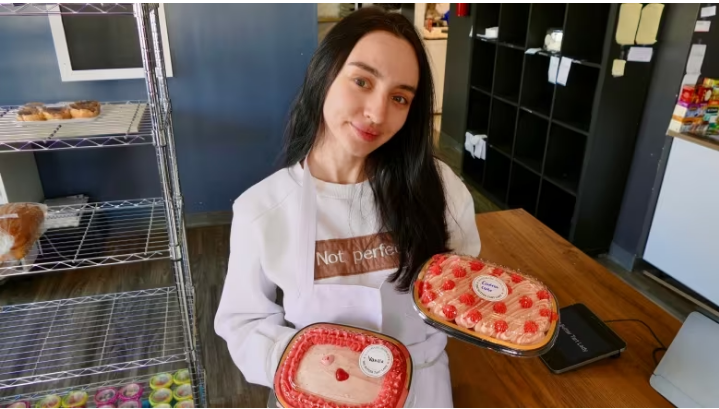
Hanna Tokar shows off some of her work Tuesday afternoon at the Butter Tart Lady bakery in Winnipeg. She came to Canada from Ukraine as a refugee just over a month ago. She was offered the role of head baker after owner Michelle Wierda saw her work on Facebook. (Gary Solilak/CBC)
Cheap CCTV Camera in Brampton
Life in Canada is off to a sweet start for a Ukrainian baker who has found a new home for her creations in Winnipeg.
Hanna Tokar, who has only been in Canada for just over a month, is now the head baker at the Winnipeg location of the Butter Tart Lady.
Michelle Wierda, the owner of the bakery, offered her a job after seeing a Facebook post Tokar made where she shared her struggles finding employment in Winnipeg.
“I saw her pictures and I thought, ‘I have to interview her,'” Wierda told host Marcy Markusa in a Tuesday interview with CBC’s Information Radio.
“I saw her attention to detail. Her work is just spectacular. It looked very delicious.”
Before coming to Canada, Tokar owned a bakery she operated by herself in her hometown of Kherson, a port city in southern Ukraine.
She was forced to permanently close its doors when she came to Canada, fleeing Kherson after Russia’s invasion of Ukraine.
Tokar said she was shocked to get the offer to work at the Winnipeg bakery.
“I didn’t expect [to] … have an offer to work in a bakery, because it was actually my dream to have that job here. So it was amazing for me,” she told Information Radio.
Feb. 24 will mark the one-year anniversary of the war in Ukraine.
Since then, more than 800,000 Ukrainian nationals and their family members have applied for special temporary resident visas to come to Canada, according to Immigration, Refugees and Citizenship Canada. The ministry said as of late December, more than 132,000 Ukrainian nationals had entered Canada since the start of 2022.
Best CCTV Camera in Brampton
While Tokar’s parents are safe elsewhere in Europe, she says she prays for her grandparents who stayed in Kherson, which has experienced heavy damage due to shelling.
“I actually miss Ukraine. I actually miss my friends and my life — my previous life,” Tokar said.
“I really want them to really be proud of me, so that’s why when I have a job I called them and my grandparents really cried.”
As she settles into her new role as head baker at the Butter Tart Lady’s Winnipeg location, the return to what has been a lifelong passion provides Tokar with familiarity in a new place.
Although she is still new to the position, Tokar is already infusing the menu with traditional Ukrainian treats,Wierda is excited about serving Ukrainian cuisine.
Of these treats is pampushky, a Ukrainian garlic bread that is traditionally served with borscht, Tokar explained.
On the two days she made pampushky, it sold out immediately, said Wierda.
As they look toward to the future, the two women are excited for their partnership.
“I love to be so creative and imaginative, and that’s what I’ve seen in Hanna, is that she’s very determined,” Wierda said. “She has a strong ambition to excellence and she’s always researching, looking for new ideas, new things and she really love serving Ukrainian cuisine.”
For Tokar, this experience provides hope for what life in Canada can be.
“You know, I never expect that, like, some foreign people can support me like that,” she said.
“And I really like appreciate the kindness of people.”
Every day, a group of senior women gather at the Mennonite Family Centre in Zaporizhzhia, Ukraine, to share some meals, take care of personal hygiene needs, visit, sing, and have a Bible study.
“We are here as a family. … We eat here, we socialize and talk, and we receive support,” said Galina Petrovna, 84, a retiree who has been attending the day program at the Mennonite Family Centre for eight years. She was speaking in Ukrainian and her words have been translated.
The centre was established as a registered charity in 2002 by the Mennonite Benevolent Society in Winnipeg, which continues to oversee and fund its programs.
“This is mainly elderly and disabled people who need material and emotional help,” said Sergey Butyrin, the centre’s assistant director.
“We try to create an atmosphere like a global family so that everyone can feel that they are loved and accepted here … to remind of humanity and love.”
In addition to the day program, the centre offers home care for bedridden clients, most of whom are widows.
There’s also daycare and education for children with special needs, a respite and seniors visitation program and a small medical clinic.
“We thank all those who take part in this because, thanks to your support, we can ensure a dignified existence and a very decent communication, nutrition and stay of those people who especially need attention, especially need help, especially in those very difficult times that our country is going through,” said Irina Gnidenko, program co-ordinator for the respite centre.
Zaporizhzhia is a city in the southeast part of Ukraine. Many people fleeing the bombardment in Mariupol have sought refuge there; more than half of the settlements in the region are currently occupied by Russian forces.
“It is a pity that now a difficult and disturbing time has come, the war has begun. Sirens often howl, we hear explosions, we close the windows of our houses in the evenings so that no light can be seen,” said Petrovna, who was born in Russia and still has family there.
“It is scary to think how it was possible to create such a disaster — bomb cities, villages, kill women, children, old people, mock, rob, destroy in all possible ways.”
Lydia Utkina echoes that sentiment. She also attends the day program and is grateful for the help the centre has provided, especially in the last two years.
“Life before the war, and now, is hard for us. The pension is small,” she said.
“It was hard for us when there was a COVID epidemic, and people hardly worked, there was little money, but we were supported by the family centre. They helped with groceries. When it was possible to come to the centre, we were fed breakfast and lunch.”
Mennonites first arrived in Ukraine in 1788, at the invitation of Catherine the Great, the last and longest reigning empress of Russia. She offered them free land, religious and educational privileges and a military exemption.
The Mennonites established farming and manufacturing communities that became very successful.
Over the years, though, those religious and education privileges were challenged and repealed, causing the first migration from Russia to Canada in the 1870s, said Conrad Stoesz, archivist at the Mennonite Heritage Archives in Winnipeg.
During the Russian revolution, Mennonites supported the White armies and became targets of the Red armies. In the Soviet years, Mennonites were marginalized and starved. Those who complained were disappeared.
It resulted in another major emigration to Canada and other parts of the world.
Mennonites in North America wanted to help those left behind, “so they administered food aid, soup kitchens, tractors, that type of thing to Mennonites but also to anyone who needed help,” Stoesz said. He has several grainy black and white photos showing people lining up for food in scenes a century ago that are being echoed in Ukraine today.
It was the early work of what would become the Mennonite Central Committee, a relief and peace organization that continues to work in Ukraine and around the world.
Ukraine achieved independence from the former Soviet Union in 1991, which prompted Mennonites from Canada and the United States to return and visit as a way of discovering their roots.
“They came back talking about the plight of seniors and wondered whether the Mennonites in Manitoba or in North America generally couldn’t do something to help the seniors in Ukraine. And that’s how we got started,” said Louie Sawatzky, the Winnipegger who acts as a liaison between the Mennonite Family Centre and the Mennonite Benevolent Society.
“We have had to suspend some of the programs during COVID and now again during the war. There have been strict curfews. … but we’ve tried to return to the programs as soon as we can.”
Back at the centre, 83-year-old Dina Khvostenko reflects on what it was like to grow up in Ukraine during the Second World War — and how it compares to the current conflict.
“I remember how tanks of enemies stood behind our house. There were also soldiers behind the Dnieper River and there was a shootout,” she said.
“But such a horror that is happening now, I do not remember. … This war is very cruel. They kill civilians, maim, rob, rape.”
She, too, is grateful for the island of peace she has found at the centre.
“We feel good here, we eat, we pray, we sing, we eat,” she said. “Thank you to the people of your country who help us, who support us, and thanks to the staff of the centre. May God send his mercy to them.”

